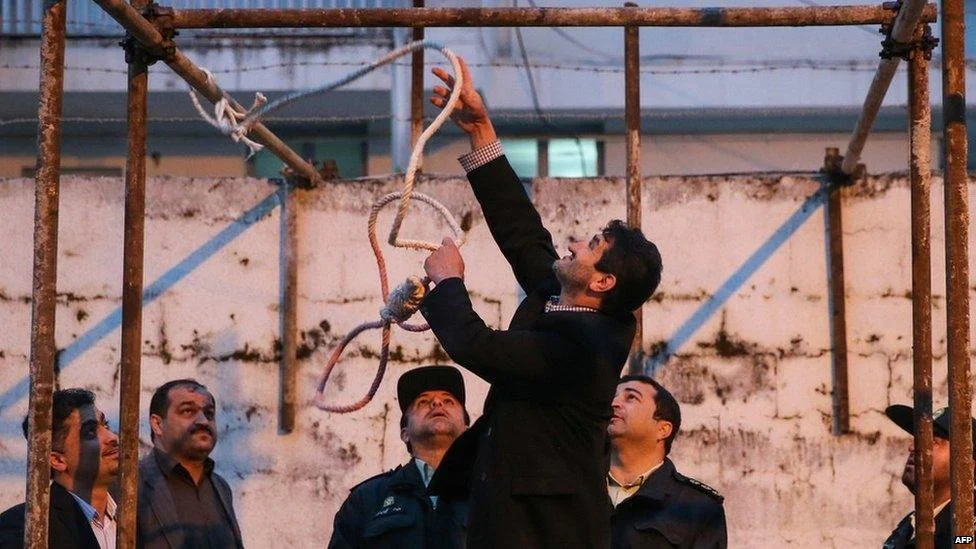Iranian judicial authorities confirmed on Tuesday that a man convicted of murdering a physician in the country’s southwest has been publicly executed.
The sentence was carried out in public, strongly emphasizing the government’s stance on crime and security.
The sentence of qisas (retribution) was delivered earlier this morning in Yasuj. Yasuj serves as the capital of Kohgiluyeh and Boyer-Ahmad province.
The judiciary’s official outlet reported the execution of the individual convicted in the death of the physician.
Legal Procedure and Public Warning
The judicial body verified that the legal process included a formal mental health evaluation of the defendant. Following this evaluation, the Supreme Court upheld the sentence. This crucial step allowed the retribution to proceed.
The provincial prosecutor, Vahid Mousavian, issued a sharp warning. He stressed the symbolic goal of the public punishment. He stated the implementation of this sentence delivers a direct message to anyone seeking to disrupt the security and civil order of society.
Execution Practices and Global Context
Iran primarily executes convicted individuals by hanging. While most of these judicial killings occur inside prison facilities, the authorities do occasionally carry out public hangings. These public acts are reserved for specific, high-profile cases.
According to global human rights organizations, the country holds a documented record as having the world’s second-highest number of executions, trailing only China.
This high rate of capital punishment places a consistent spotlight on Iran’s justice system and penal practices.
Official reports did not detail the specific motive for the crime. The relationship between the convicted individual and the physician was also not specified.
However, carrying out the sentence publicly highlights the severity with which the judicial system views acts of violence against key community figures like medical professionals.
The debate over using public execution remains intense internationally. Human rights advocates argue the practice constitutes cruel and inhumane punishment.
Authorities, however, often defend such acts. They see them as necessary deterrents to maintain public security. They also believe the acts satisfy demands for swift justice in capital cases.
The official confirmation of this execution further draws international scrutiny to Iran’s application of the death penalty under its legal framework.




















